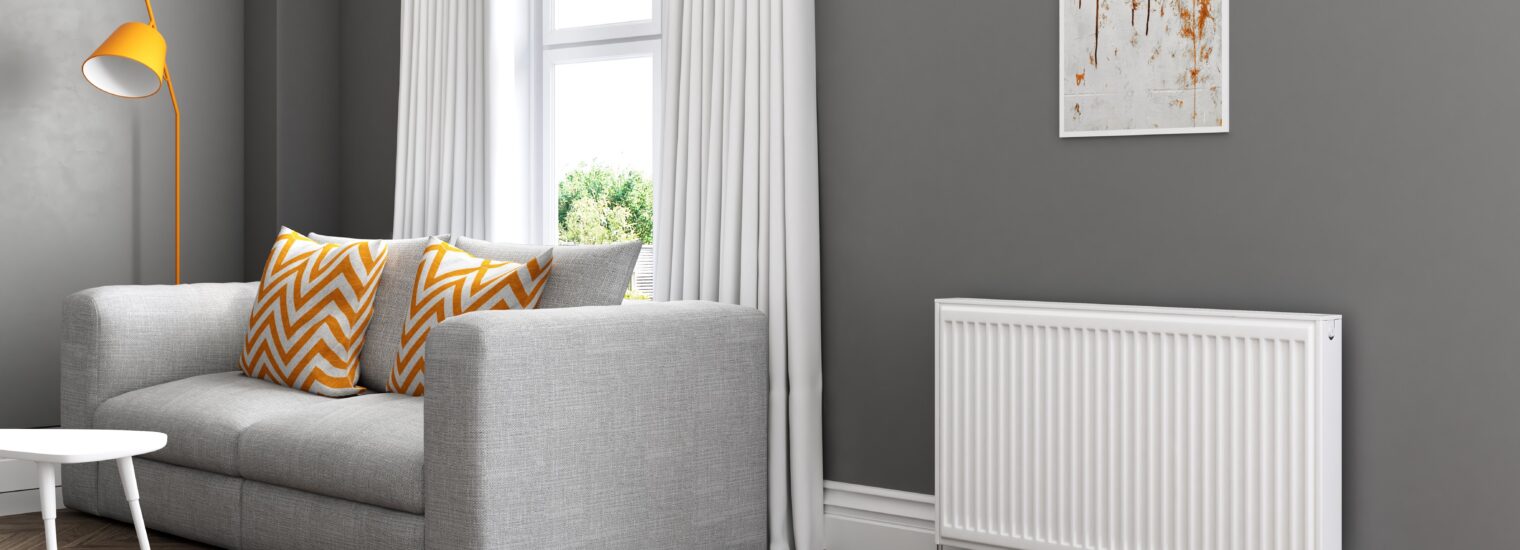If your heating system is running when the thermostat is off, would you know what to do and what the cause could be? If you’ve not experienced this before, having radiators get hot when the heating is off can be both puzzling and frustrating. This common issue might stem from various causes within your home’s heating setup, so to help, below we’ll explore several potential causes and what you can do.
From faulty valves to thermostat issues, you’ll find some practical solutions to help you restore proper function and comfort to your heating system.
Are Your Central Heating Radiators Getting Hot When The Thermostat Is Off?
Have you ever noticed your radiators getting hot even though your thermostat has been fully turned down or switched off? Understanding why this happens is crucial to be able to troubleshoot the issue and ensure your system operates efficiently and safely.
Most of the time, it won’t require any major repairs, and many of the solutions that we’ll provide below can be done yourself with a bit of DIY. You may even be able to resolve this by replacing radiator accessories such as a TRV (more on this below). Of course, if you are not confident in being able to fix this issue, it’s always best to arrange for a qualified professional to check your radiators and heating system over. That way, you can have peace of mind the issue has been fully resolved.
Why Do My Radiators Get Hot When The Heating Is Off?
A Faulty Diverter Valve
A diverter valve directs hot water produced by your boiler to the radiators or hot water taps, depending on where it’s needed most. When this valve gets stuck or fails, it can mistakenly send hot water to the radiators even when the heating is set to off. This is a common reason for radiators heating up unexpectedly.
To address a faulty diverter valve, start by ensuring it isn’t simply stuck. Sometimes turning the heating on and off can help it pop back into its proper position. If this doesn’t work, it may need cleaning or lubrication which will need a gas-safe registered engineer. For more persistent issues or if the valve is broken, replacing the diverter valve is often the most effective solution. For this, it’s advisable to hire an engineer to check the system over.
A Faulty Check Valve
Check valves prevent the backward flow of water in your heating system, which helps maintain the direction of hot water to where it’s currently needed. A malfunctioning check valve can allow hot water to flow into the radiators by mistake, causing them to heat up even when the heating is off.
Fixing a faulty check valve usually involves either repairing or replacing it. This task can be complex, as it requires draining part of the system and accessing the valve, which is typically integrated into the pipework. You’ll need professional assistance to ensure the job is done correctly and safely.
Why The Heating Is Still Not Switching Off
A Faulty Thermostat
The thermostat is the control centre for your heating system, dictating when and how much heat should be produced based on the temperature settings you input. If it becomes faulty, it may fail to communicate the correct commands to your boiler, causing your heating to stay on uncontrollably.
Start by checking the thermostat’s settings and batteries; sometimes the solution is as simple as a battery replacement or a reset. If the issue persists, check for wiring problems or signs of damage to the device. If you’re unsure how to diagnose this problem or you do find issues with the thermostat, it’s wise to consult with a professional to either repair or replace it.
A Faulty Thermostatic Radiator Valve (TRV)
Thermostatic Radiator Valves (TRVs) allow individual control of the temperature in different rooms. A malfunctioning TRV can cause a radiator to remain hot even when the heating system is set to off because it fails to properly regulate the flow of hot water.
If a TRV is stuck, try gently tapping it to see if it releases. If this does not resolve the issue, you might need to remove the TRV head and check if the pin on the valve is stuck. If the valve itself is faulty, replacement is typically necessary.
A Faulty Valve
Beyond the diverter and check valves, other valves in your heating system can fail and lead to your central heating radiators getting hot when the thermostat is off. This includes zone valves that control the flow of hot water to different areas or floors in your home.
Identifying which valve is faulty often requires a process of elimination or the insight of a heating engineer. Once identified, faulty valves usually need to be replaced. Because accessing and replacing valves can involve interacting with the boiler and pipework, you won’t want to do so yourself. A professional service is recommended to ensure the system remains safe and operational.
Contact Us
If you’ve tried troubleshooting your heating system but the issues persist, it might be time to call in the experts. Arrange for a gas safe registered engineer to review the issues with your radiators getting hot when the heating is off. If you have any questions about your radiators, please contact our team.
Remember, when it comes to your home heating, it’s better to address issues sooner rather than later to avoid further complications and costs. If you are looking at replacing TRVs or want to upgrade any of your existing radiators, why not browse our range of Stelrad products including the latest designer radiators and timeless column radiators, perfect for any room in your home.

